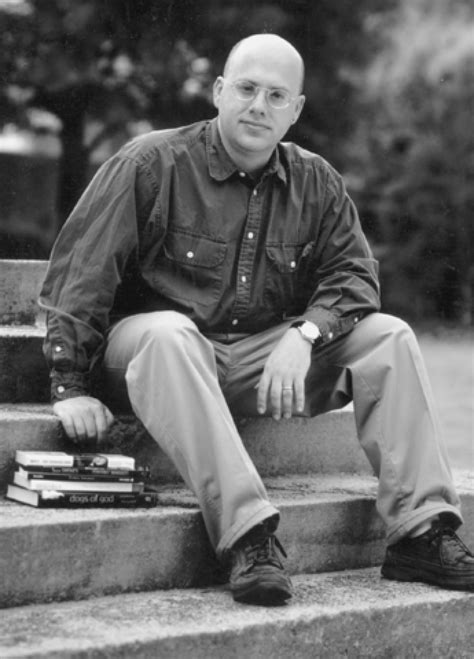A Quote by Garry Disher
A good writer can set a thriller anywhere and make it convincing: the trick is to evoke the setting in such a way that it highlights the crime or unsettles the reader.
Quote Topics
Related Quotes
Once rehearsals are done the writer really doesn't have a function on the set. If the script is stabilized, then the writer becomes a celebrity tourist visiting the set, trying not to get in the way. It's very good for the ego, to go visit a film set if you are the writer, because they give you a special chair, and tell you where you can sit to watch the monitor. They make you feel special, but at the same time, they make it perfectly plain that you are irrelevant!
I don't think that writing, real writing, has much to do with affirming belief--if anything it causes rifts and gaps in belief which make belief more complex and more textured, more real. Good writing unsettles, destroys both the author and the reader. From my perspective, there always has to be a tension between the writer and the monolithic elements of the culture, such as religion.
reading is not a passive act. It's a creative act. It's a relationship between the writer and a person the writer will probably never meet. I think it's very wrong to write in a way that leaves no room for the reader to maneuver. I don't want to get in the way. What I'd really like to do is to perform the Indian Rope Trick - go higher and higher and eventually disappear.
I think the trick of being a writer is to basically put your cards out there all the time and be willing to be as in the dark about what happens next as your reader would be at that time. And then you can really surprise yourself. There's that cliche, "No surprise for the writer, no surprise for the reader!"
Once I got interested in organized crime, and, specifically, Jewish organized crime, I got very interested in it. I have learned that, like my narrator Hannah, I'm a crime writer in my own peculiar way. Crime with a capital "C" is the subject that I'm stuck with - even Sway is about "crime" in a certain way. The nice thing about crime is that it enables you to deal with some big questioO
Walter Mosley was not the first black crime writer, nor was he the first to fuse genre conventions with larger social concerns. But when 'Devil in a Blue Dress' introduced the Los Angeles-based private detective Easy Rawlins nearly 20 years ago, it was clear the author set out to stretch the boundaries of the mystery and thriller framework.
How often I have tried to tell writing students that the first thing a writer must do is love the reader and wish the reader well. The writer must trust the reader to be at least as intelligent as he is. Only in such well wishing and trust, only when the writer feels he is writing a letter to a good friend, only then will the magic happen.
I don't have personal experience and knowledge about anything but theater. I've been tutored very well on the subject, but ultimately I'm going back to the rules of drama. There are genres that I like as an audience member that I can't write as a writer. I can't write crime, and I like a good thriller as much as anybody.
We must be forewarned that only rarely does a text easily lend itself to the reader's curiosity... the reading of a text is a transaction between the reader and the text, which mediates the encounter between the reader and writer. It is a composition between the reader and the writer in which the reader "rewrites" the text making a determined effort not to betray the author's spirit.


































